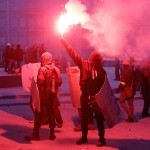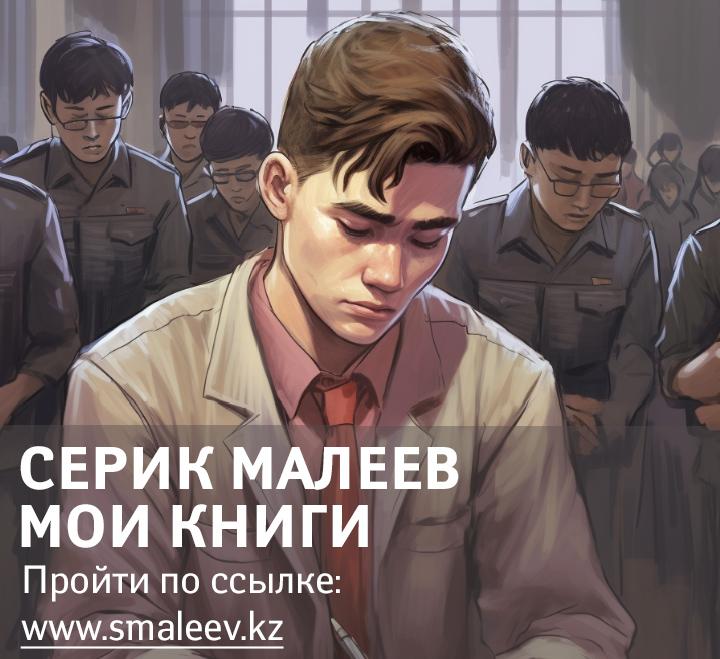 Many former Soviet republics experienced the destructive nature of color revolutions, one of which is being implemented in Ukraine in version 2.0. However, there is no consolidated response to the situation from the CIS in sight. Ukraine is the chairman of the association, why not gather a quorum and get support? The question to the presidents of the CIS is simple: «Do you want the method of forcing pressure on the authorities tried out in Ukraine to be applied in your country?»
Many former Soviet republics experienced the destructive nature of color revolutions, one of which is being implemented in Ukraine in version 2.0. However, there is no consolidated response to the situation from the CIS in sight. Ukraine is the chairman of the association, why not gather a quorum and get support? The question to the presidents of the CIS is simple: «Do you want the method of forcing pressure on the authorities tried out in Ukraine to be applied in your country?»
Uzbek President Islam Karimov was the only one to speak about it. «During the entire confrontation in Ukraine CIS has never expressed its opinion. People from everywhere came and tried to influence the process. What was the influence of the CIS? In the end, we just cannot help but wonder what is happening in Ukraine,» Islam Karimov said in an interview with Nezavisimaya Gazeta. «The Commonwealth can no longer pretend that nothing has happened lately. Today the CIS is not able to make independent decisions, and someone is clearly taking advantage of it,» said Islam Karimov. Who can benefit from this situation?
Analysts from CIS countries interviewed by Pravda.Ru agree that behind the events are third countries that support the radical forces and do not express the will of the majority. «There is no will of the people behind these events; it is done for the sake of the interests of third countries. Unfortunately, we see that the situation is out of control,» told Pravda.Ru Sergei Musienko, Belarusian head of the analytical center ESOOM. The expert said that there was a lack of control over the situation from both the authorities and the opposition. «The development unfortunately becomes obviously negative, people are suffering. This is a serious moment that requires thinking from Russia and Belarus, because in Ukraine today scenarios that were used in Belarus and at Bolotnaya Square in Russia are being implemented. These scenarios could develop into a phase of disintegration of the country. This is not done for the sake of European interests, although it is done under the flag of the European Union, it is done in the interest of, let’s say, third forces that benefit from the worsening of the situation,» said Sergey Musienko.
«Direct and indirect participation of third countries in the processes in Ukraine is obvious,» told Pravda.ru Kazakh political scientist, Director of «Risk Assessment Group» Dosym Satpayev. «In Kazakhstan the society is also divided into two parts, although the events in Ukraine do not cause general public interest. But representatives of the opposition forces in Kazakhstan went to Ukraine, tried to look at the situation from the inside to see what motivated human masses. Some believe that this is an example for Kazakhstan in how people should express their position, while others view it as another political show in which, as always, the people will suffer.» Answering the question why there is no consolidated response from CIS, Dosym Satpayev said that this had to do with the ambiguous attitude of the project participants towards Russia.
«Russia does not have as many allies as it may seem. In the full sense of this word only a few countries play this role. It is Kazakhstan and Belarus. The main opponents of the Russian Federation are geopolitical Azerbaijan and Georgia, for obvious reasons. The countries of Central Asia treat the Russian Federation quite well, Kyrgyzstan has partially good attitude towards it, and Tajikistan, Uzbekistan and Turkmenistan do not have particularly warm feelings about it. There is no consolidated assessment because everyone has a different assessment of the situation. Some even unofficially support the orientation towards the West, while others believe that Ukraine needs to connect with the post-Soviet space, but believe that Russia should not play the main role there. Nobody wants a new Big Brother,» said the analyst.
But does it matter who supports whom in the geopolitical games? The problem is quite different and has to do with a method of implementing a change of power and, ultimately, the political reorientation of the country. «What is happening on Maidan is not happening without foreign interference. Its objective is to keep Ukraine from rapprochement with Russia. This is intertwined with the internal Ukrainian events, the struggle for power, and weakness of Yanukovych’s power,» told Pravda.Ru Sergei Nazariya, head of the Association of Historians and Political Scientists «PRO-MOLDOVA». He believes that in the international arena the CIS countries do not have a coordinated line of conduct, and just as his Kazakh counterpart he talked about what country supported which line. «Moldova is looking to the West, and its leadership rather supports those who are currently on Maidan. Kazakhstan and Belarus probably do not want to tarnish their relations with the West. If they support Yanukovych, it will be seen as disrespect towards the West. Russia has refrained so far from any sudden movements for the same reasons, and then the Sochi Olympics is very close,» said Sergey Nazariya.
Georgia withdrew from the CIS in 2009, but its representative Kakha Kukava, the Chairman of «Free Georgia» Party, told Pravda.Ru that for Ukrainian politicians it was very important to consider the experience of Georgia. «In the early 1990s Georgia also very actively started conducting the course of integration with the EU, NATO, there were radical trends towards severing the relations with Russia, and eventually the country broke up. Tbilisi had very radical sentiments, but Abkhazia and South Ossetia did not share these sentiments, and therefore the country has disintegrated. Kiev now may also have very radical sentiments, but we must remember that these feelings are not shared for example in Kharkov or Donetsk. Now the main task for the Ukrainians is to preserve the territorial integrity and not sign the contract with the European Union,» said the politician.
Why wouldn’t Ukraine, as the chairman of the CIS in 2014, hold a summit and ask for support in terms of the condemnation of the methods of the opposition on the Maidan? It would be a strong step, and it would prevent future export of the color revolutions in the former Soviet Union. «First of all, Ukraine has chairmanship, but not a membership in the CIS. Second, the CIS does not have sufficient mechanisms to regulate such activities. Today the CIS has no real way to influence the situation. It would be more effective if each country individually expressed their position. The farther we are from 1991, the more the CIS becomes nominal. We have a statement of Ban Ki-moon, the UN secretary general, and we look forward to hearing what Russia has to say about it, » told Pravda.Ru Konstantin Bondarenko, Ukrainian political scientist, historian, member of the Humanitarian Council under the President of Ukraine, Chairman of the Institute of Ukrainian politics and the «Ukrainian politics» Foundation.
It turns out that a person close to Yanukovych places his hopes on a U.S. puppet Ban Ki- Moon who keeps changing his mind, and is not aware that the Ukrainian leadership can be supported by the President of Uzbekistan Islam Karimov. Instead of waiting to hear from Russia, Ukraine could ask it along with the President of Belarus Alexander Lukashenko. «There will be a reaction of the CIS, but it will be delayed,» reassured Belarusian analyst Sergei Musienko. «It is a structure that reacts very slowly, this is its format. They do need to react, you are absolutely right about that, because the events on Maidan may affect Russia, Belarus, and any post-Soviet country.»
Lyuba Lulko
Pravda.Ru


